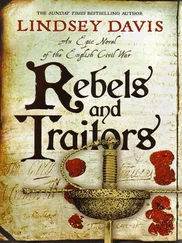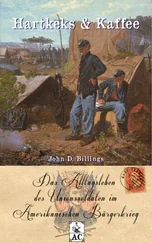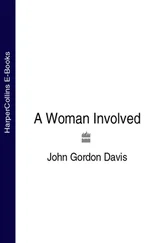JOHN GORDON DAVIS
UNOFFICIAL & DENIABLE
HarperCollins Publishers
1 London Bridge Street
London SE1 9GF
www.harpercollins.co.uk
First published in Great Britain by HarperCollins Publishers 2000
Copyright © John Gordon Davis 2000
Cover photograph © Shutterstock.com
Cover layout design © HarperCollins Publishers
John Gordon Davis asserts the moral right to be identified as the author of this work
A catalogue record for this book is available from the British Library
This novel is entirely a work of fiction. The names, characters and incidents portrayed in it are the work of the author’s imagination. Any resemblance to actual persons, living or dead, events or localities is entirely coincidental.
All rights reserved under International and Pan-American Copyright Conventions. By payment of the required fees, you have been granted the nonexclusive, nontransferable right to access and read the text of this e-book on-screen. No part of this text may be reproduced, transmitted, downloaded, decompiled, reverse-engineered, or stored in or introduced into any information storage and retrieval system, in any form or by any means, whether electronic or mechanical, now known or hereafter invented, without the express written permission of HarperCollins e-books.
HarperCollinsPublishers has made every reasonable effort to ensure that any picture content and written content in this ebook has been included or removed in accordance with the contractual and technological constraints in operation at the time of publication.
Source ISBN: 9780007574407
Ebook Edition © DECEMBER 2014 ISBN: 9780008119348
Version: 2014-12-15
To Tana and David Hilton-Barber
COVER
TITLE PAGE
COPYRIGHT
DEDICATION
PROLOGUE
PART I
CHAPTER 1
CHAPTER 2
CHAPTER 3
CHAPTER 4
CHAPTER 5
CHAPTER 6
CHAPTER 7
CHAPTER 8
CHAPTER 9
CHAPTER 10
CHAPTER 11
PART II
CHAPTER 12
CHAPTER 13
CHAPTER 14
CHAPTER 15
CHAPTER 16
CHAPTER 17
CHAPTER 18
CHAPTER 19
CHAPTER 20
CHAPTER 21
CHAPTER 22
CHAPTER 23
PART III
CHAPTER 24
CHAPTER 25
PART IV
CHAPTER 26
CHAPTER 27
CHAPTER 28
CHAPTER 29
CHAPTER 30
CHAPTER 31
CHAPTER 32
CHAPTER 33
CHAPTER 34
PART V
CHAPTER 35
CHAPTER 36
CHAPTER 37
CHAPTER 38
PART VI
CHAPTER 39
CHAPTER 40
CHAPTER 41
CHAPTER 42
CHAPTER 43
CHAPTER 44
CHAPTER 45
CHAPTER 46
CHAPTER 47
CHAPTER 48
CHAPTER 49
CHAPTER 50
CHAPTER 51
PART VII
CHAPTER 52
CHAPTER 53
CHAPTER 54
CHAPTER 55
CHAPTER 56
KEEP READING
ABOUT THE AUTHOR
OTHER BOOKS BY
ABOUT THE PUBLISHER
Andy Meyer, the junior officer on watch in the US Coast Guard station, remembered the yacht dropping anchor in the open channel of St Thomas, American Virgin Islands, in the small hours of that September morning in 1996 because it was not flying a flag. Four hours later, just before dawn, he noticed the yacht steaming out of the channel towards the nearby British Virgin Islands. Meyer hoped the skipper knew what he was doing – there were rocky waters ahead, best navigated in daylight, and technically he should have registered his arrival in American waters before departing. Meyer decided to make an entry in the Log, just to show he had done some work.
The sun was up when the yacht, Rosemary , anchored in the big open bay of Road Town, Tortola, the sleepy little capital of the nearby British Virgin Islands, but it is established by Immigration Department records that it was not until three o’clock that afternoon that the skipper, Sinclair Jonathan Harker, reported his arrival. He appeared, according to Mrs Doris Johnston, the chief immigration officer, to have been drinking; he was nervous, unshaven, wild-looking. He gave his last port of call as Nassau, Bahamas, and produced a crew list certifying that only he and his wife Josephine were aboard. He presented Josephine’s passport, along with his own, but Mrs Johnston told him that Josephine had to report in person. Mrs Johnston then demanded his Nassau port clearance certificate: Harker said he had not known he needed such a document before leaving the Bahamas. Mrs Johnston told him in no uncertain terms that he would have to return to Nassau to get it.
Harker then left Mrs Johnston’s indignant presence, went to the American Express office and telephoned Josephine’s insurance company in New York advising them of her death and asking what procedures he had to follow. He then sent a fax to her attorney, asking the same question, then another to her father, Denys Valentine, in Boston, reporting his daughter’s death, saying he would telephone as soon as he had composed himself. Then, instead of heading to the police station to report her death, he returned to his boat and proceeded to drink a bottle of rum.
At noon the next day a police party went out to his boat, alerted by Mrs Doris Johnston who had complained to them that Josephine Harker still had not reported to Immigration Department. The Commissioner of Police, Joshua Humphrey, found Harker sitting in the saloon of his yacht, ashen, starting on a new bottle of rum. Harker looked up and said:
‘I want to report a person missing on the high seas …
Joshua Humphrey, portly, black, with forty years’ experience, suspected immediately that Sinclair Jonathan Harker was guilty as sin ; ‘ Sin-clear Harker the sinful sailor,’ he dubbed him. And when he went into Jack Harker’s history and learned that he had been a career officer in the Rhodesian army battling freedom-fighters until the bitter end of that long, nasty, bush war, he was sure. But when he learned that, at the end of that war, Harker had been snapped up by the South African Defence Force to fight in their bush war in Angola against the ANC guerrillas and the Cuban army, Commissioner Joshua Humphrey, a devout Africanist, was downright convinced of his guilt.
‘An’ what you bin doin’ since you stopped being a soldier for apartheid, Major Harker?’
‘A publisher. And I was never a soldier for apartheid – I was a soldier against communism.’
Joshua Humphrey found the distinction a metaphysical one but decided not to argue. ‘A publisher ? How does a military man become a publisher, sir? Where?’
‘In New York. Commissioner, I’m very traumatized and I feel your attitude is persecutory.’
‘In New York , huh?’
The Commissioner was smart enough to know his lack of real experience. It was a relief to share responsibility and telephone the US Coast Guard in St Thomas and ask, as a favour, whether an officer experienced in investigations on the high seas would come over to take a look at this case.
The Virgin Islands, with balmy turquoise bays and white beaches, interlaced with exotic coral reefs, are very beautiful, possibly the best real estate in the world, but commercially they are good for little more than offshore banking and tourism. Named for their unspoilt beauty, they were colonized by Great Britain and Denmark as bases from which to battle the Spaniards and the pirates who plagued the merchantmen carrying the spoils of the New World back to Europe. Sugar plantations were developed, but the problem was labour: the tropical heat made the cane fields unworkable by white men; they simply did not have the sweat-glands for hard work in such a climate. The solution was black labour – for over two hundred years British and American slaving ships sailed to West Africa and brought back their cargoes of human beings to be sold as slaves to the plantation owners. The Virgins, like all the islands arcing across the Caribbean Sea, prospered, despite a series of rebellions by slaves which were ruthlessly suppressed. But then came the Abolition of Slavery Act in Great Britain which decreed that all slaves throughout the British Empire be freed at midnight on 31 December 1834.
Читать дальше












